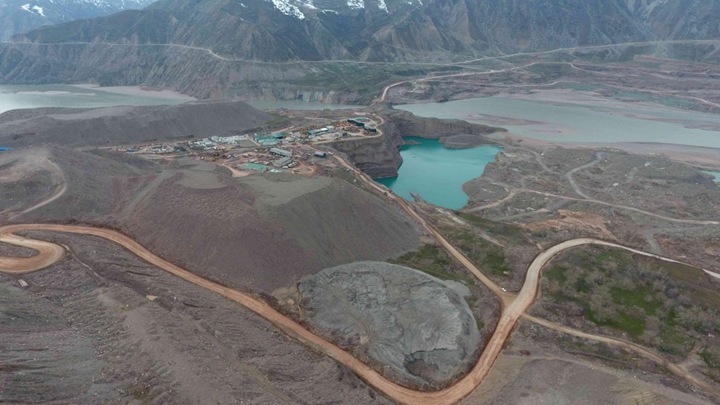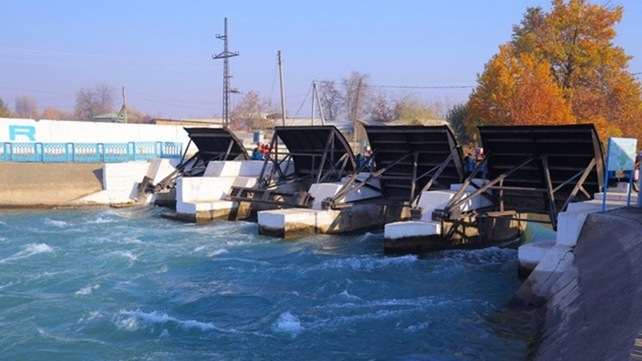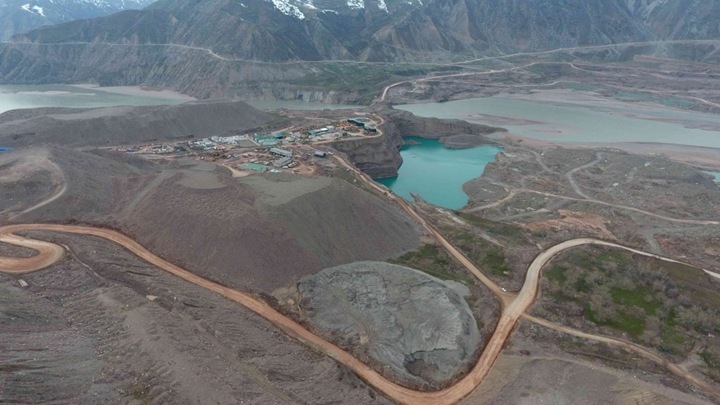The Board of Directors of the World Bank refused to investigate the Rogun Dam
The Board of Executive Directors of the World Bank refused to conduct a full-scale investigation into the Rogun Dam construction project in Tajikistan. This decision was made after considering the complaint of the Rivers without Borders Public Foundation, filed on behalf of residents of Turkmenistan and Uzbekistan living downstream of the Amu Darya River. Officials justified the refusal by the fact that only residents of the country that receives funding for the project from the World Bank can file complaints about the project. The international coalition Rogun Alert believes that the bank used a formal reason to avoid discussing the real environmental and social problems of the region.

The complaint, registered by the World Bank Inspection Commission back in April 2025, pointed to the serious risks posed by the Rogun Dam project for the countries of the lower reaches of the Amu Darya: water scarcity, deterioration of water quality, ecosystem degradation and potential forced resettlement. The applicants stressed that the assessment of the environmental and social impact of the project is based on incomplete and outdated data, as well as Tajikistan’s promises not to use the capacity of the Rogun reservoir in full force, which have not been legally fixed in any way.
The World Bank Inspection Commission, having conducted a preliminary inspection and visited Tajikistan in June 2025, recommended that the Bank launch a large-scale investigation. The Commission’s experts have established the existence of an extremely probable link between the alleged damage and the activities of the Rogun Dam project. However, the Board of Directors of the World Bank rejected this recommendation, citing internal rules. At the same time, the bank did not explain why in 2010 similar complaints from residents of Uzbekistan regarding the Rogun Dam were considered, despite the cross-border nature, and in 2025 they were denied this.
“The fact that the Inspection Commission recommended launching an investigation confirms the validity of the fears of the residents of Uzbekistan and Turkmenistan,” said Yevgeny Simonov, chief specialist of the Rivers Without Borders Public Foundation. “The refusal of the Board of Directors on the basis of legal formalities looks like an attempt to avoid responsibility for the complex and underestimated cross–border consequences of the project, which could change the lives of millions of people in the lower reaches of the Amu Darya for the worse.”
The expert points out that the current situation creates a dangerous precedent for the whole of Central Asia, where water use issues are critically important. The refusal to investigate deprives the communities at risk of hope for fair compensation or adjustment of the project in the event of negative scenarios, such as soil salinization or destruction of the agricultural way of life.
“The World Bank declares high standards of stakeholder engagement, but this case shows a real gap between their policies and practices,” says Alexander Kolotov, director of the Rivers Without Borders Public Foundation. “When the voices of transboundary communities are silenced for formal reasons, it jeopardizes the very idea of inclusive development and equitable use of water resources.”
According to environmentalists, the refusal to consider the complaint on its merits clearly demonstrates that the mechanisms for taking into account the opinions of residents of neighboring countries do not function properly, despite all the assurances of the World Bank that the Rogun Dam project will ensure cross-border security. When it comes to real objections from cross-border communities, their voices are simply suppressed by procedural barriers.
The Rogun Alert Coalition, which, in addition to Rivers Without Borders, includes such well-known international organizations as International Rivers, Bank Information Center and CEE Bankwatch, will continue to monitor the situation around the construction of the Rogun Dam and will look for other ways to protect the environmental rights of residents of the region whose interests were ignored under the procedures of the World Bank
Original (in Russian): Совет директоров Всемирного банка отказался от расследования по Рогунской ГЭС


